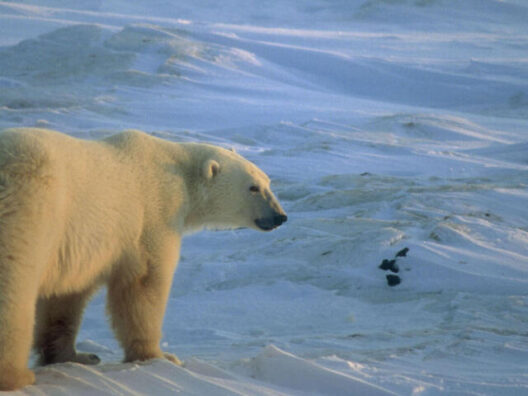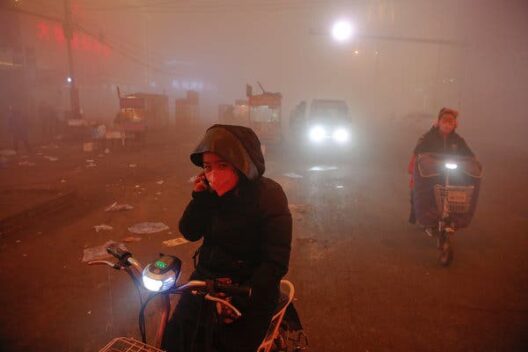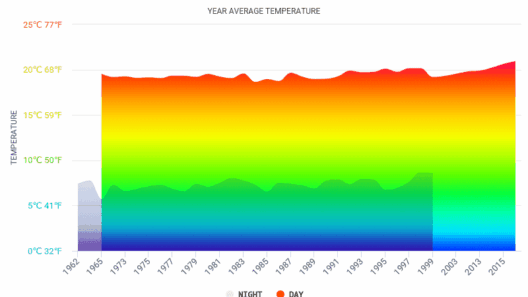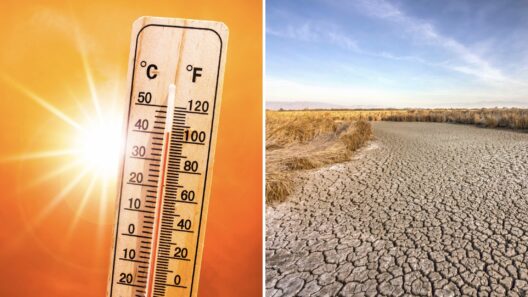Climate change is often a subject of heated debate, eliciting passionate responses from a diverse range of communities. While the overwhelming scientific consensus affirms that climate change is real and driven primarily by human activities, a counter-narrative persists, asserting that climate change is a fabrication. This phenomenon raises significant questions about why a segment of society clings to anti-climate change rhetoric even in the face of mounting evidence. Understanding the allure of such beliefs necessitates a deeper exploration beyond surface-level claims.
One prominent observation is the tendency for some individuals and groups to vehemently refute climate change. This rejection appears to stem from a myriad of factors, including ideological alignment, economic interests, and psychological dynamics. By examining these aspects, we can unearth the complicated web of motivations and social constructs that contribute to the persistence of climate change denial.
Firstly, let us consider ideological influences. Many climate change skeptics are entwined in political affiliations that espouse limited government intervention and free-market capitalism. For these individuals, acknowledging the existential threat posed by climate change may necessitate a fundamental shift in their beliefs about governance and economics. Consequently, accepting climate change as a reality is often perceived as an affront to their core values. This ideological dichotomy makes it easier to dismiss scientific data as “fake” or manipulated rather than confront the uncomfortable implications of such acceptance.
Evidently, economic interests play a substantial role in perpetuating the notion that climate change is a hoax. Industries dependent on fossil fuels, for instance, have a vested interest in discrediting climate science. Their financial well-being hinges on maintaining the status quo, and any policies aimed at reducing carbon emissions threaten their profit margins. As such, these corporations frequently engage in disinformation campaigns designed to muddy the waters regarding the scientific consensus on climate change. By funding research that downplays the threat or promoting narratives suggesting that climate science is inconclusive, these entities instigate doubt among the public, creating an environment ripe for skepticism.
Another critical element in the climate change denial narrative lies in the psychological realm. Cognitive dissonance plays a pivotal role in how individuals reconcile opposing beliefs and facts. Acceptance of climate change often necessitates acknowledgment of one’s own complicity in contributing to the crisis—this realization is uncomfortable. As such, individuals may default to denial as a defense mechanism, choosing to minimize the gravity of the situation rather than confront the personal and societal adjustments that are required. This psychological coping strategy allows them to maintain a semblance of normalcy, as grappling with the implications of climate change could connote a dire need for transformational change.
The narrative of climate change being “fake” is not merely a contrarian stance; it encompasses a broader fascination with skepticism itself. The allure of conspiracy theories is profoundly entrenched in human nature—conspiratorial thinking often provides simplistic answers to complex problems. In a world inundated with information, individuals frequently seek explanations that are easily digestible rather than engaging with the nuanced realities dictated by emergent scientific findings. This drive toward simplification can foster a predilection for narratives that are easily communicated and shared, regardless of their factual basis.
Societal dynamics also contribute to the propagation of climate change denial. The internet and social media have facilitated the rapid dissemination of misinformation, allowing fringe ideas to gain traction and appearance of credibility. Communities that share disbelief in climate change often create echo chambers where dissenting opinions are silenced and dissenters are ostracized. This reinforcement of shared beliefs cultivates a sense of belonging, solidifying group identity against perceived external threats, including the scientific community.
Moreover, outrageous claims about climate change, such as the idea that it is a hoax perpetrated by scientists or governments, draw attention. The sensationalism inherent in such narratives resonates with a population that thrives on drama and intrigue, often overshadowing methodical scrutiny and factual investigation. This performative aspect of denial serves to amplify the allure for those seeking validation for their skepticism, therefore perpetuating a cycle of misinformation.
To further complicate matters, the concept of reliability itself is intricately woven into the fabric of climate change discourse. Questions about the legitimacy of scientific authority surface, as trust in institutions has been eroded by various scandals and perceived failures. As individuals grapple with a world rife with misinformation, they often retreat into a perceived objective reality where dissent from mainstream science is framed as an act of bravery rather than one of ignorance.
It becomes increasingly clear that framing climate change as a mere fabrication is a multifaceted issue deeply intertwined with our societal structures, psychological behaviors, and economic systems. While the scientific community continues to provide robust evidence of climate change and its dire implications, the dissenting narrative is equally potent, relying on tangled ideology, vested interests, and the human penchant for skepticism.
In confronting the assertion that climate change is fake, it is vital to address the underlying motivations that fuel such beliefs. Only by recognizing the nuances of this multifarious issue can we foster meaningful conversations that bridge the divide between scientific inquiry and public perception, ultimately paving the way for collective action against this existential threat.







